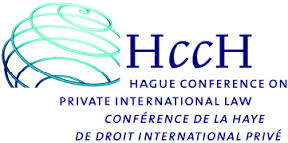
The service of foreign process in Ireland for documents originating in non-EU countries must be carried out under the procedure laid down in the Hague Convention of 1965 which dealt with the service of judicial and extrajudicial documents in Civil or Criminal matters abroad.
Many law firms, banks and others find it more cost effective to engage the services of process servers in whichever jurisdiction is relevant.
However in Ireland, the only valid way of effecting service in accordance with the Hague Convention is either through
- the Central Authority or
- using an Irish solicitor.
This article explains why this is the case.
Please note this Hague Convention only applies to signatories of the Hague convention and non EU countries; service between EU countries is covered by the Brussels I regulation, the Brussels convention or the Lugano convention.
So the procedure discussed here would apply if you were an American or Australian company or bank for example seeking to have documents served in Ireland on an Irish defendant.
The Hague convention rules which cover this area were given effect in the Rules of the Superior Courts in Ireland under statutory instrument 101/1994.
These rules deem the Master of the High Court to be the Central Authority in Ireland.
The procedure involves you as a judicial officer in, say, the United States filling out a form which is annexed to the Hague Convention which is called a Request form.
You can access the request form here.
(Do note that if the request is not a Hague convention request and is not in English then the request and documents will have to be translated into one of the two official languages of the Irish State-English or Irish-and two copies of all documents will have to be provided)
The form is in fact in 3 parts-Request, Certificate and Summary.
If the request is a Hague Convention request from a Convention country then the Request form is left in with the Central Office of the High Court and if the Central Authority is satisfied that the Request is in conformance with the Hague Convention then the Central Authority generally directs service in the manner requested by the applicant unless this method is incompatible with the laws of Ireland or is not in compliance with the practice and procedure of the High Court.
If the Central Authority is not satisfied with the Request it can set out it’s objections to allow the applicant rectify the matter.
If there is no specific method of service requested by the applicant the Central Authority will direct personal service on the Defendant.
If this is the case the Central Authority may direct service by the Chief Solicitor’s office.
Process server
Service is then carried out by delivery and leaving with the Defendant one copy of the documents to be served and any translation if appropriate.
Once service is then effected by the process server he/she returns to the Central Authority with one copy of the process and an Affidavit setting out how service was carried out.
This affidavit sets out how service was effected.
The Central Authority may stipulate a time period within which service is to be effected.
If and when the Central Authority is satisfied with service it will issue a certificate to this effect which will be your proof of service under the procedure laid down in the Hague Convention-this Certificate is part 2 of the Request form which you can access above.
Process servers in Ireland
Terry Gorry, Solicitor provides process serving services for a growing number of international clients.
Our membership of the Law Society of Ireland, understanding of the laws applicable in Ireland and the Rules of the Superior Courts, ensures that our clients receive a professional service from start to finish.
Read about service within Europe between EU states, jurisdiction and service of legal documents also.
For a quotation within 24 hours for service in Ireland please fill out the form below.
[contact-form 2 “Enquire About Process Serving”]
If you have a question or concern, please use the contact form below. We respond within 24 hours, guaranteed.